Identified with Literature II" Amidst the multiple weaknesses, groping for the miracle of living ft. Yang Jiaxian, Li Qinfeng, Apyang Imiq (Cheng Ting)
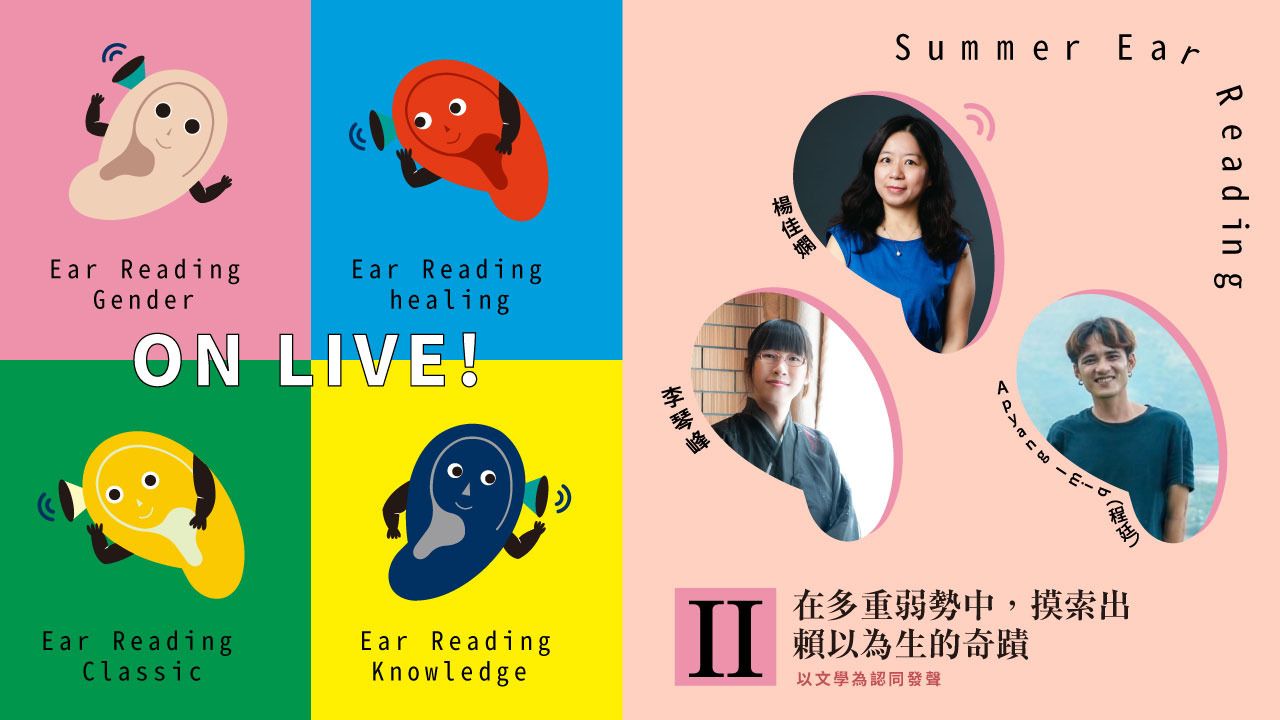
Moderator: Yang Jiaxian; Panelists: Li Qinfeng, Apyang Imiq (Cheng Ting)
Text finishing: Li Yikun, Chen Bojun
➤Home, for comrades, is it a place to be escaped, or a place to stay?
Yang Jiaxian: Next, let’s move on to an issue related to both of your works, that is, “gender”, because both of them wrote about the situation of gays. Such as disguising in the heterosexual mainstream society; or being discriminated against and violent (including mental and physical); or having to fight against established religious and cultural prejudice, etc.
In the creations of the literary predecessors in the past, such as the well-known "Niezi" and "Rebel Girl", the core of the novel was to be expelled from the family or to escape from the family. But being evicted or escaping from family does not mean that they do not want a home. Often, after these gay men and lesbians flee from their families or are evicted from their families, they will want to create another home in their own world.
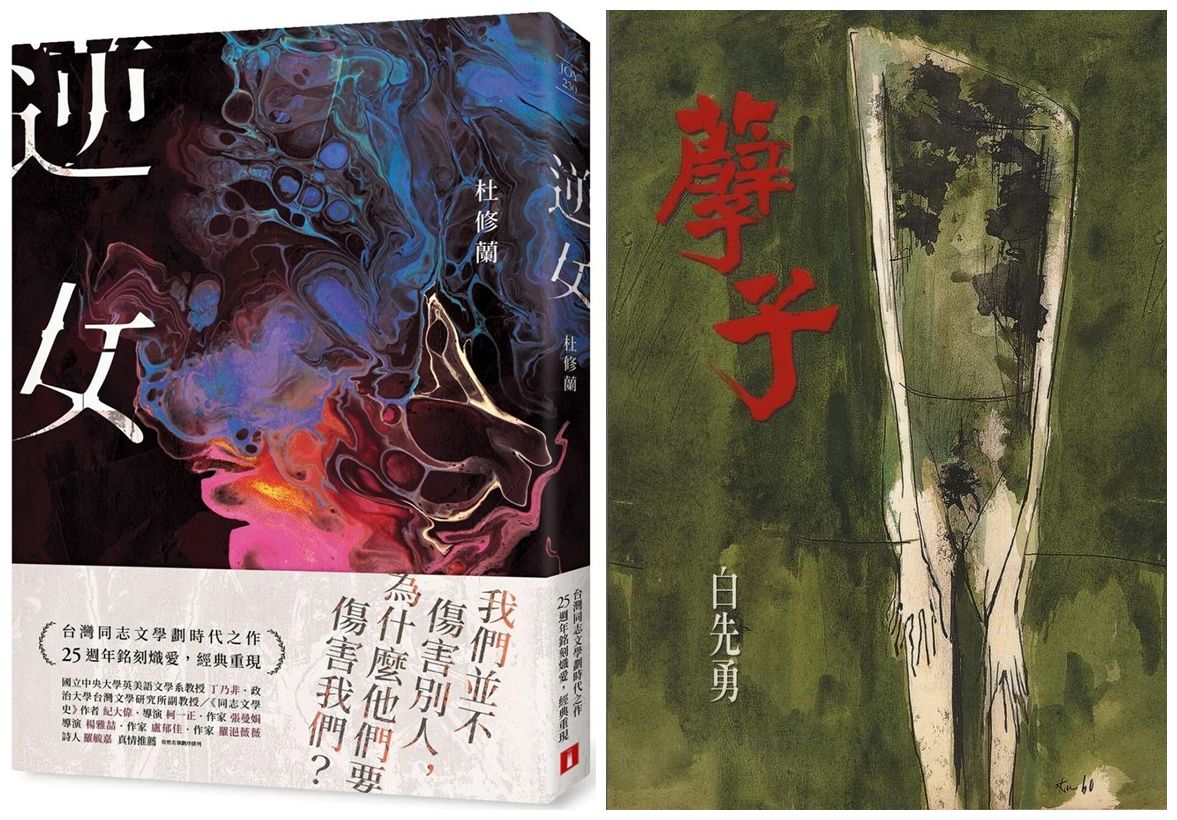
In the life experience of gays, the family is often the first object that must be fought. In your own work, how do you respond to this important theme of gay literature? For example, Zhao Yingmei (Zhao Jihui), the protagonist in "Solo Dance", or for gay men returning to the tribe, what is the meaning of home? Is it possible to rewrite the definition of home?
In the past, Taiwan has also talked about the possibility of pluralistic marriages entering the law, although it is often slandered as pornographic imagination; on the other hand, we have seen that Taiwanese people like Hirokazu-eda’s films very much. His films often talk about pluralistic marriages, but different ones. imagination of home. What are your views on this topic from your own works, or from reading or ordinary thinking?
Li Qinfeng: Indeed, in the past LGBT literature, especially "Niezi" and "Anti-Girls", about being expelled from or fleeing from a family are key images or elements. As far as the real gay community is concerned, "home" is often a threshold that is difficult to cross. Just recently, because of the translation of Li Pingyao's "Plants to the Light", I watched the author's Youtube. It also said that it is relatively easy to come out with friends, but coming out with family members or parents is really the feeling of the ultimate devil. Not everyone is like this. Of course, there may also be very supportive family members. After all, everyone's life experience is different.
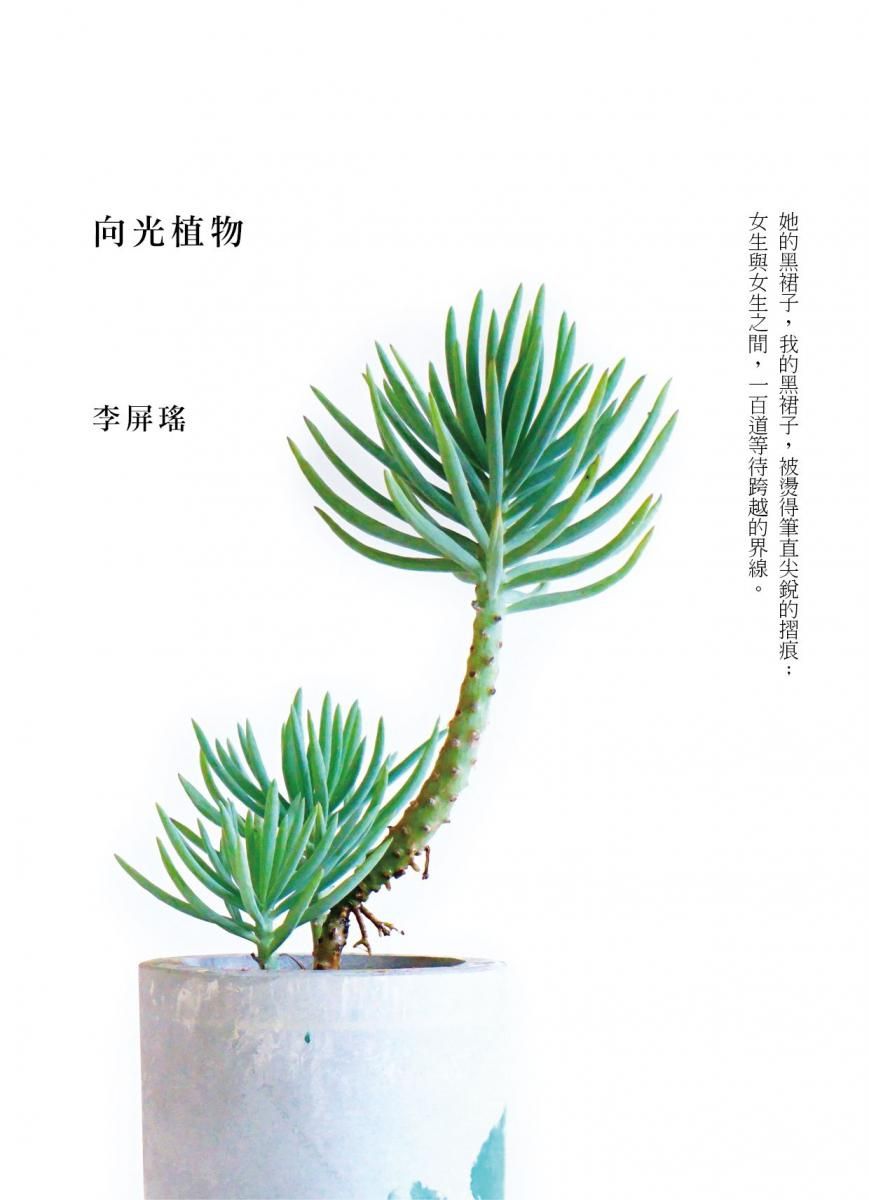
Regarding "Solo Dance", in fact, Zhao Yingmei/Zhao Jihui are also fleeing, but what she is fleeing is not so much "home", but something bigger than "home", for example, social violence. You don't see "society" at all, but it is existence, and that existence brings you violence, oppression.
What Zhao Jihui was escaping from was a huge, shadowy oppression. At the same time, she has her own traumas, her own memories, her own past, and what she escaped is actually such a thing. Is there any way to escape such a thing? Is it possible to escape? This is exactly the question I want to explore in this novel. Can we really leave everything behind and escape somewhere else?
Of course there is no answer, because everyone's situation is different. Actually, I don't really want to use the word "home" because it has so many preconceived ideas. It may not be so obvious in Chinese, but in Japanese, the word "家" (いえ) is stronger and more closely tied to the patriarchal system and the concept of family. The family system (いえせいど) has been deeply rooted in Japanese society since the Meiji Restoration. If the word "family" is used, in the context of feminism or gender equality, it is actually an object that must be defeated. Especially in Japanese.
So I prefer to use another word: いばしょ, if it is translated into Chinese, it may be "a place to live", "a place to live and live". It is not necessarily a home, it may be a group, a group, a community, a partner, in short, a place where you can live in peace. Such places, I think, are very important cornerstones for gays and other disadvantaged groups in society, and they are the elements that support our survival.
➤In the Taroko language, husband and wife are called Embbais, which means "partner" or "pair"
Yang Jiaxian: Thank you Qinfeng. In "Solo Dance", it is not so much the oppression of the family as the oppression of social violence. But in a broad sense, the family may inherit or act as a proxy for social forms of violence. This is very common in gay novels, and not only in Chinese works. For example, in the British novel "The Orange Is Not the Only Fruit", you can also see the control and oppression of gays by family and religion.
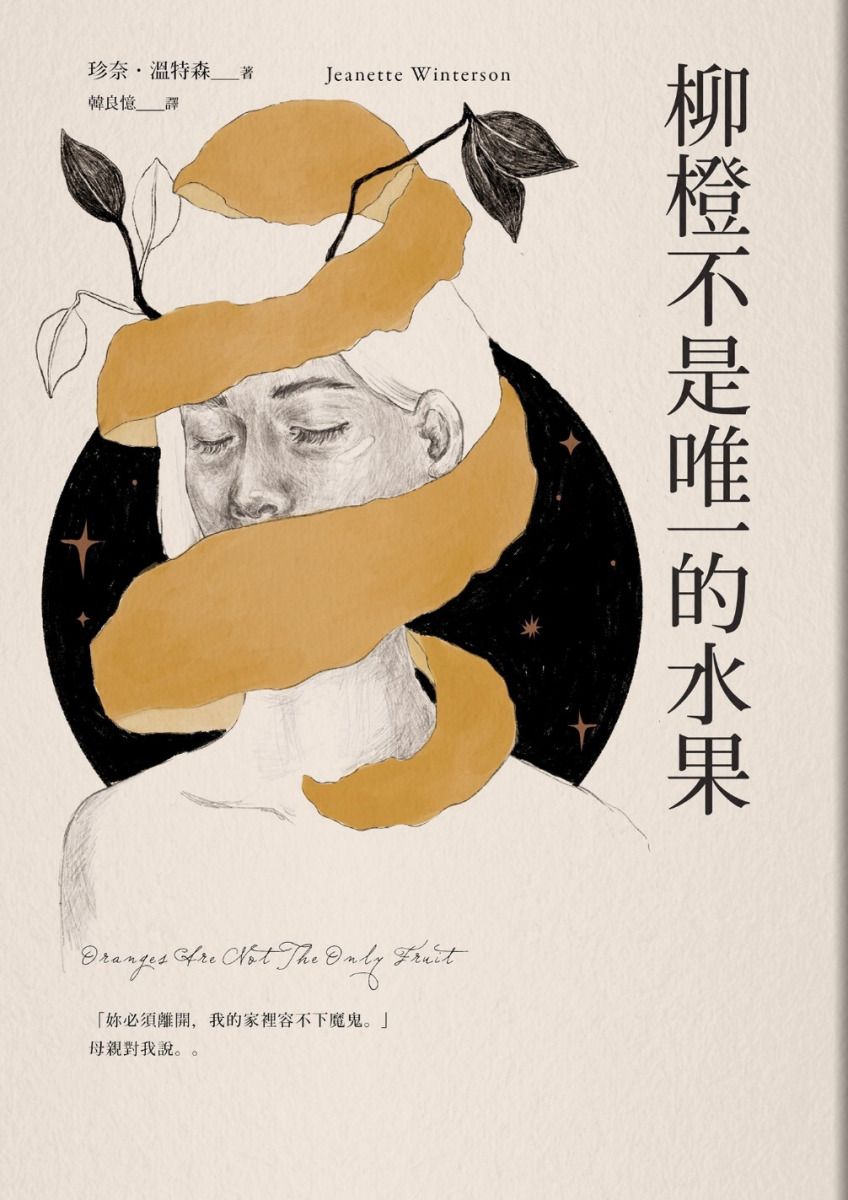
There was something about Qinfeng just now that you talked about very well. The place you mentioned is really another destination. If we look at it with "Niezi", it is the new park. We don't necessarily say it's a home for gay men there, but it's a place for them, even if they're not blood related.
Next, let's talk to Apyang.
Apyang: In the Taroko culture, the family name is Sapah. The cultural logic of home that we generally imagine and understand is that boys and girls form a family. In traditional houses, there are three stones for burning things. We call them Rqda, "Three Stone Signs", which represent father, mother and child respectively. So our traditional concept of family is that husband and wife have children.
In this collection of my creations, the concept of many things is actually "do": How can I become aboriginal when I return from the city? How do I do tribal life? How to learn tribal culture? Or how can I use practice to create a relatively gender-friendly environment in the tribe?
When I was including the article, I was really stuck in my heart for about a few seconds. I wanted to say, should I include articles that talk more directly and clearly about gender? In the past, these works that may have been written on the Internet or won literary awards may not be seen by everyone, but if they are included in a book, it is easier for everyone to see. I want to say, should you put it?
In the end I felt like I had to let it go, because for me, I had to do something and take it as natural. It's like everyone is chatting, the so-called daily conversation state, some conversations we can discuss publicly, and some conversations must be spoken in private (whether it's about sex, or gender). But whether speaking publicly or privately, the state of the dialogue is natural and real. Why can't we take these private conversations into account? Can't put it in a certain way and let other people know? Obviously this is part of our lives. My thinking is this.
Again, I think it's very interesting: in Chinese, "husband and wife" means a husband, a wife, a boy and a girl, but in the Taroko language, we say "husband and wife", called Embbais, which actually refers to a partner, a pair the meaning of. For example, if there are two slippers, if the one on your left is missing, you will ask where is the other one.
I think the interpretation of that ethnic language can be fully applied to our imagination of the family up to now. In "I Grow in an Open Tree Hole", there are many things that want to return to the culture of the Taroko people. How to face the different things in the contemporary era? Or when we have a pluralistic society, how do we go back to our own culture and find a way to interpret it? It's something I like to do myself.
➤ Should traditional norms be used to limit the development of young Hui tribes?
Apyang: For example, when we talk about Bhring, we mean that when the hunter goes up the mountain, his daily actions will affect the spiritual power he can obtain the prey. For some people, maybe you are gay and do not conform to the traditional cultural norms, called Gaya. Maybe when you go up the mountain or when others go up the mountain with you, it will affect your luck in getting the prey. But I said in the book "Your gun filled with Bhring shot at me", even though I am gay, when I go up the mountain with you to learn to hunt, we can still get a lot of prey, what's the problem?
So I responded to the topic of the University: How do we look at returning home and imagine our family? In response to the fact that more and more people in modern society can face different sexual orientations and multiple genders, should we still use traditional and old norms to limit the development of these young people back to the tribe? My thoughts will be accepted as much as possible. In many cultures, there are actually many ways for us to accept each other.
Yang Jiaxian: In the past, we often saw in literature or documentaries that in the life of the aborigines, the "tribe" itself is a family, which means that unlike ordinary families, the boundaries between individual families are very clear and the system of private property is very clear. The whole "tribe" is for everyone to share with each other, and the "tribe" is a family. Is this still the case in your tribe?
Apyang: It will still be the case. We are in the tribe, and people will ask who you are as a child. If you ask someone to do something with you, everyone will judge your parents first, and then judge you, which is a common value.
➤The disconnect between the creative field and the real social field is a thorny problem in Japan
Yang Jiaxian: I think it’s interesting to see on the Internet, for example, the self-narratives of aboriginal comrades. He wants to talk about his sexual identity, and at the same time he has a strong ethnic identity, then when he returns to the tribe living At that time, what kind of situation will you face?
We also saw some related narratives in "I Grow in Opening Tree Holes". For example, your parents or elders may want you to come back home, but may not accept your husband because the Bible does not allow such a thing. But maybe the Bible doesn't say that such a thing is not allowed either. I think family, ethnicity, and religion are all intertwined a lot.
Going back to Qinfeng again, when we were doing gender campaigns in Taiwan, people were often confused. They felt that in Japanese literature and Japanese films, we could see a lot of expressions of multiple sexual orientations, but when I read Japanese social news, I felt that Japan is very, very conservative when it comes to gender. Why is there such a gap or difference in the middle?
Li Qinfeng: Can you give some examples of Japanese pop culture, movies, and TV dramas in your impression?
Yang Jiaxian: For example, the very popular "Yesterday's Food".
Li Qinfeng: I think there are many aspects to discuss. First of all, creation is fictitious, whether it is comics, animations, TV dramas, novels, fictional works will be out of touch with the real society. Second, if we really analyze in depth, are these works that discuss multi-gender or gay disadvantaged groups really written? Have you done it? For example, "Yesterday's Food" is of course a very good TV series, but a gay partner can do such a work, what about a lesbian partner? Is there such a work? Can't seem to think of it. In the field of creation, there is still some inequality, not to mention that some works seem to be multi-gender themes, but they are more like consumption, or objectification of gender-diverse ethnic groups.
I think what is more important is the first aspect, the disconnect between the field of creation and the real society. Why is this happening? This of course has to do with political reality. Japanese society is not like Taiwanese society. After democratization, political parties will be rotated every 8 years. Japan basically does not rotate political parties. Of course, there have been rotations, but these are very few exceptions.
This conservative faction has been in power for a long time, and what they will want to protect is the emperor system, which is the most important, and the family order established after the Meiji Restoration. For example, same-sex marriage, or more diverse gender imaginations, family imaginations, these things are not acceptable, for them, it is a taboo that touches their hearts.
Until recent years, there are still many members of the ruling party or members of the conservative party who continue to make discriminatory remarks and then continue to be criticized, but it still happens. Although in the field of creation, people constantly want to try new and more diverse creations, the phenomenon of disconnection from social reality is more serious in Japan. This is of course a large and difficult subject.
➤Being estranged from you after coming out of the closet?
Yang Jiaxian: Let me ask Apyang first. Just now you mentioned "doing" aboriginal people, and also "doing" gay men. By "doing" I mean practice. For you, being Aboriginal or being gay, which one is more difficult to overcome?
When people use the terms gay or aboriginal, they will inevitably be suspected of labeling, but through the reference, it may become clearer. For example, you can state yourself, and others can state you, which will play a certain role.
Is being Aboriginal versus being gay is a conflict for you? We actually read about this kind of conflict in your book. Do you think there is a way to resolve this conflict? You also mentioned that you are very committed to promoting a gender-friendly environment in the tribe. What do you think you can do?
Apyang: Being aboriginal, or being aboriginal gay, it seems a little hard to compare the difficulty, but I think it's a good question. When I created "I Grow in Opening Tree Holes", it happened to be when I was farming. At that time, my appearance was actually much different from what it is now, and the weight was relatively heavy. At that time, the heaviest was 76 kilograms, and now it is only 56. My mother was very happy to see me, she said that she looks very MAN and looks good now.
I remember when the book first came out, some readers gave me feedback, asking whether this creation would deepen the impression of some people on the returning youth. For example, as a returning youth or a boy in a tribe, you should be able to go hunting in the mountains, and then be relatively strong and able to handle a lot of labor. I thought about it later, I didn't mean that. For me, the more masculine temperament or the more feminine temperament is considered by others, it mainly depends on how you like to be.
Of course, other readers also gave me feedback that when we do a certain gender temperament, it is more in line with everyone's expectations for the role in this cultural context. But I don't actually want to deepen such labeling. No matter what gender you are today, the main decision is what you want to look like.
I know the situation of some tribal comrades, their gender temperament, or because of their sexual orientation, they are reluctant to go out of the tribe to interact with other people, or because of their sexual orientation, the family is not in a good state. My own situation is because my parents can accept it, so I am not afraid of anything. Like Qin Feng just said, it seems that I have defeated the big devil.
Extended Reading" 2021 Openbook Good Book Award. Chinese Creation of the Year "I grew up in an open tree hole (recommendation by the judges and acceptance speech)

Yang Jiaxian: Did your parents take a while to accept it?
Apyang: My mother was telling me a while ago that she thought it was strange, but I was her child, so she had no choice but to accept it.
When I first came out of the closet, some elders of many tribes were very good, but they could feel that life would be a little different. I won't say it explicitly, but I may be very good to you in the front, and I will distance myself from you after coming out of the closet. I would have been very concerned at first, thinking that I came back to do things related to public affairs and should have a brighter image, but I have returned home for so many years, I think it should not be like this, but to try to make other People can understand that we can all live like this. Such a life should be accepted.
➤ The so-called normal imagination seems to overshadow the love between parents and children
Yang Jiaxian: It is really important that parents accept it. In my gay writing in Taiwan, if I read that there is a more peaceful and happy state, it is usually because my parents accepted it. In the last century, gay literature seems to be closely associated with madness, death, and some tragic encounters. This feeling may be seen from social news, or the influence of Qiu Miaojin's people and books on us. Although there is still a long way to go to fully achieve equal rights today, society has indeed changed a little bit. For example, Chen Xue and the breakfast person can guide all people how to fall in love and how to live with their partners. Today is a comrade who is guiding you, and I think this is a very interesting thing.
Shekate's first book, "My Ant-Man Father," also wrote about how he came out with his parents. This book is very interesting. He put a lot of family photos of himself, his parents, and brothers behind the collection of essays about his family experience as a comrade. Such a thing might have been completely unimaginable in the last century. The world does have some loose ends, some changes.
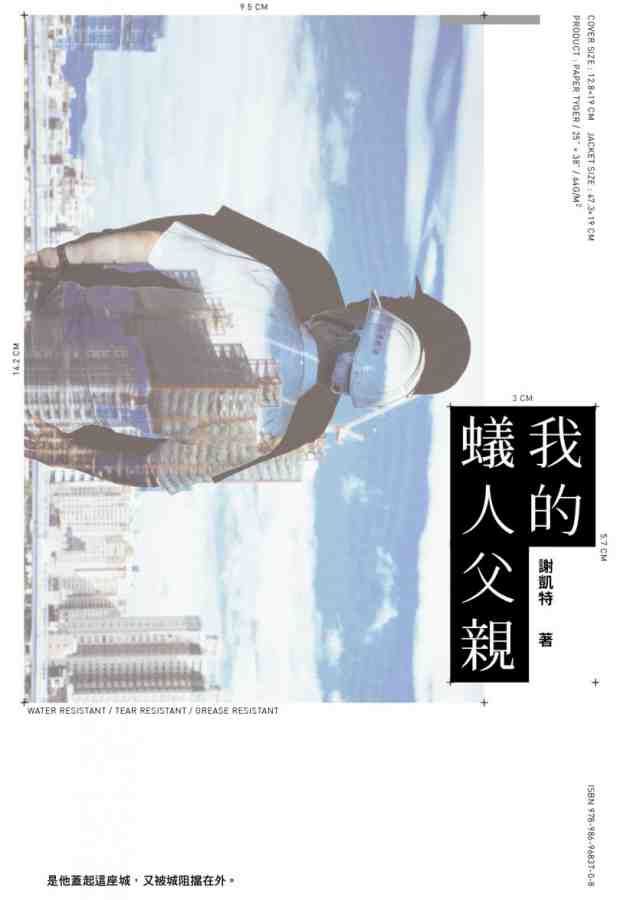
I think it's very exciting for parents to accept it, why? No matter if I'm gay today or whatever, I'm still your child. Could it be that I am heterosexual and am I your child? However, we have seen many children who cannot be accepted by their families. Parents' fear of sexual orientation, so-called normal imagination, and even the pressure of mainstream society has overshadowed the love between parents and children.
➤ What I want to write is actually a situation of multiple weaknesses
Yang Jiaxian: Let’s ask Qin Feng again. The work "Solo Dance", especially in the front, makes one feel a depressing atmosphere. Because the protagonist, originally named Zhao Yingmei, later changed her name to Zhao Jihui in Japan, she suffered violence at several different levels: for example, social and systemic violence that she might encounter as a lesbian; the second level is the protagonist because she is Women's relationships are raped by men; the third level is the strange eyes of others after being raped by men, everyone thinks that you should get better soon, why are you pretending to be suffering; the fourth level is Lesbian partner, no forgiveness for her past.
When we read the plot of self-confession, many people may be like me. They originally thought that there would be a plot of forgiveness, acceptance, and comfort. They thought that a woman who loves a woman will accept the hurt that this woman has suffered. But we found out that her partner didn't accept it at all, and even saw it as a smear, and said it explicitly. In other words, it is more understandable to understand sexual or gender weakness or harm if you are not of the same sex, or of the same sex.
What were your own thoughts on the multi-layered violence suffered by women in the first novel? To put it simply, I think Zhao Jihui's character is too miserable to suffer from so many levels of violence.
Li Qinfeng: First of all, as to whether we are both female or gay, we can better understand each other's situation. I think it will be more understandable, but not absolute.
Zhao Jihui or Zhao Yingmei, what she first represents, or the position she is forced to stand in, is actually the reality of this society. Each of us will have many attributes - we are born with some attributes, such as your nationality, language, gender, sexual orientation, gender identity, ethnicity, blood, etc., these things will define us for life, It's almost a lifetime, and it brings us a lot of limitations. Among these labels, some are relatively weak attributes, and some are attributes that are biased towards the social majority. What I want to write about is actually a situation of multiple weaknesses.
Zhao Yingmei is first and foremost a woman, and being a woman is of course disadvantaged. She is also a lesbian, and then she is a survivor of sexual violence. Then she came to Japan. She is a foreigner, and of course she is in a disadvantaged situation. In such a multiple vulnerable situation, how can she find her own way of survival? How to explore the miracles on which you live and survive? This is what I most want to write in Solo Dance.
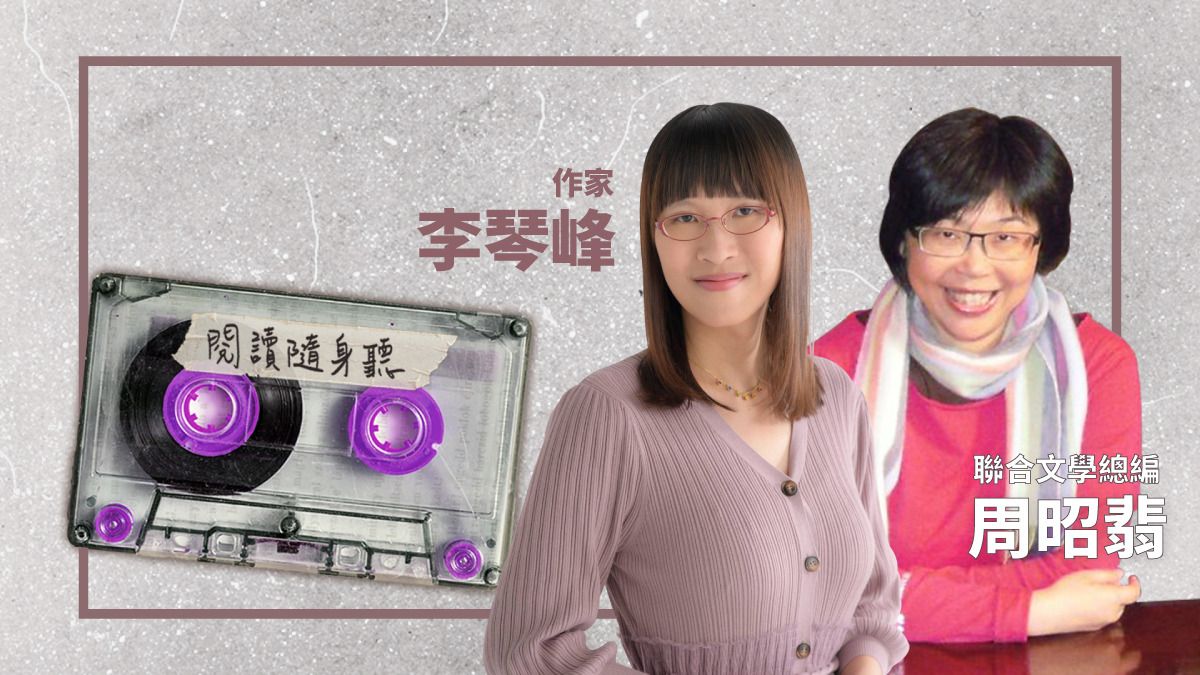
➤Everyone bears a different cross
To put it more academically, it is the interweaving of feminism. In third wave feminism, a very important theme is interweaving. Sometimes I'm reading other works, maybe writing about the situation of comrades, but I'm just discussing this thing, I don't see more intertwined things, and I don't see multiple weaknesses.
I recommend everyone to read my third novel, "The Night When the North Star Falls", which is about Shinjuku 2-chome, many lives that come and go here, and the history of the 2-chome area. In fact, after reading it, you will see that each person bears different things and bears different crosses, and some people just endure multiple weaknesses.
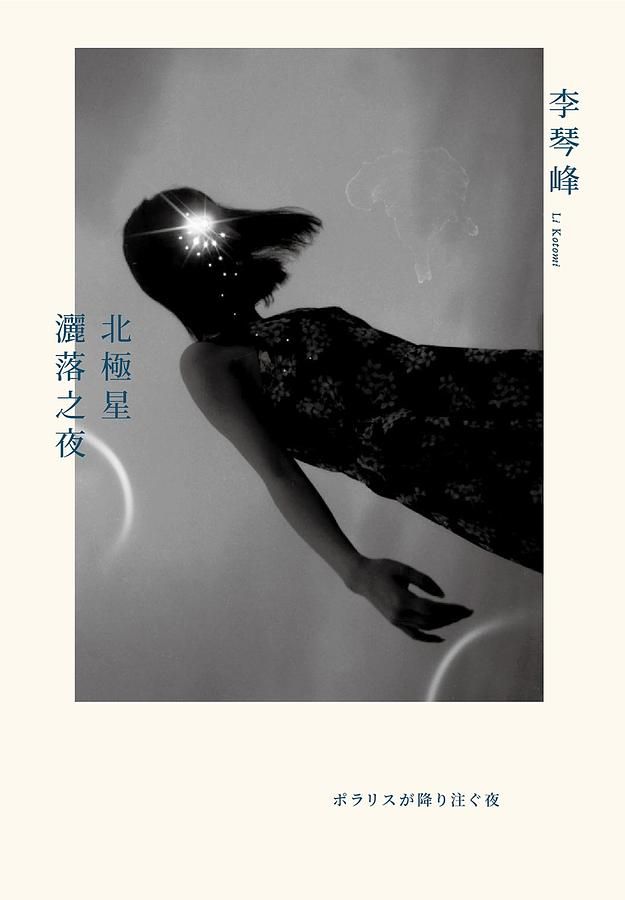
Shinjuku 2-chome is the largest gay district in Asia. In this area, there are also centers and borders. The center, of course, is gay men and cisgender men; lesbian and transgender are the border. So in the 1980s and 1990s, lesbians were still ridiculed in 2-chome, why did you come here? Of course, there have been some disputes between gay men and lesbians in the past, and this has actually happened. But in my observation, the creative field rarely touches this thing, but these must also be written. Although as a weak one, you should be able to understand the weak, but any understanding will have limitations, and this limitation must also be covered. This is a central thought and motivation of my creation of "Solo Dance".
Yang Jiaxian: Thank you. I'm glad Qin Feng mentioned "The Night When the North Star Falls", I like this novel very, very much.
This novel discusses the difference between the center and the frontier that you just mentioned. There is also a process of gradual development and struggle, and the story and reality that everyone has endured around a lesbian bar.
The limitations of understanding you mentioned are also very important. While we all want to be as understanding as possible, it is true that for various reasons, there is still a boundary. But we still rely heavily on mutual understanding. ●( The original text was first published on the OPENBOOK official website on 2022-07-10)
➤Speaking with literature as the identity, a complete profile
From Language, Gender to Ethnic Group | Amidst Multiple Vulnerabilities, Exploring Miracles to Live by | Creating a More Ideal Social Community
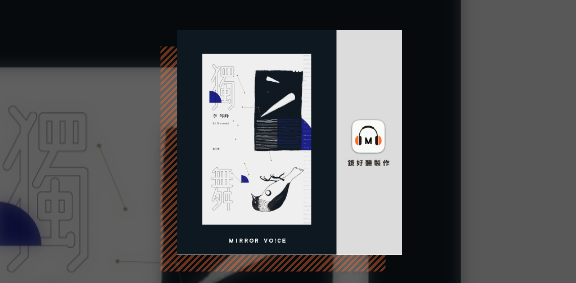
"I Grow in an Open Tree Hole" Audiobook
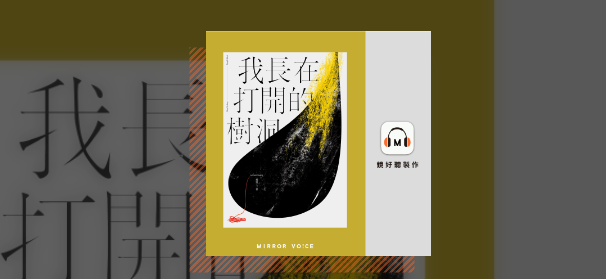
Like my work? Don't forget to support and clap, let me know that you are with me on the road of creation. Keep this enthusiasm together!

- Author
- More